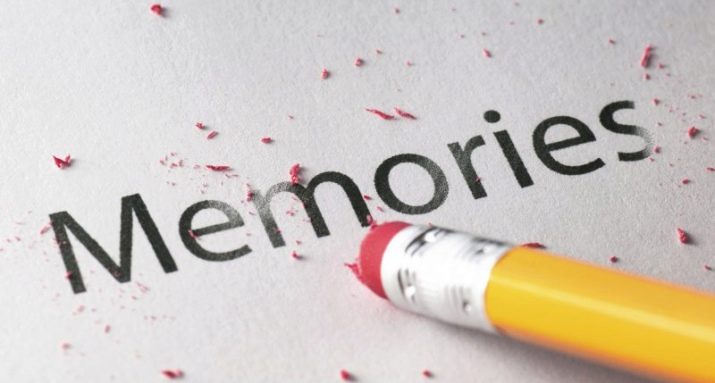How to forget bad memories?

How to get rid of bad thoughts, difficult memories, unpleasant conversation or events that bring pain from your head? Perhaps each of us at least once in his life asked himself such a question. But such memories often not only cause a bad mood. They also lead to nervous breakdowns, depression, become the cause of psychosomatic ailments, and simply interfere with our life. So is it possible to "clean" the memory? Let's try to understand this issue in this article.
Can a person's memory be erased?
Unpleasant and bad memories cannot be erased or forgotten forever by an effort of will. Typically, such selective amnesia can occur as a consequence of post-traumatic stress disorder, when it is possible to partially block bad memories. But a person cannot do this on purpose. And this is not required.
In most cases, it is not the artificial erasure of some events that helps, but the reevaluation and rethinking of them in a positive way.
In this case, the memories cease to cause severe pain, and the person begins to perceive them more calmly.

Different techniques
It so happens that the brain itself defends itself, blocking unpleasant images. Such cases, of course, are more exceptions to the rule, but they do happen.
A person who has experienced something terrible may develop amnesia. The brain thus turns on the defense mechanism. It removes unpleasant information by damaging the areas that are responsible for storing data.
The same can happen with craniocerebral trauma, with insufficient blood supply to the brain, due to alcohol or drug intoxication.But hardly anyone wants to voluntarily resort to such methods of clearing memory. Moreover, the erasure of painful memories from memory is possible with other methods. They are called artificial forgetting techniques or reconsolidation. These include hypnosis, NLP programming, chemical exposure, creation of replacement memories.

Hypnosis
This method of psychocorrection is based on the innate ability of the individual to strive for mental comfort and to process the information received. However, when we are faced with truly problematic and unpleasant situations, the brain often refuses to listen to us. And it literally imposes on us something that we would like to quickly forget, now and then returning us to these memories like a black hole. As a result, this translates into at least a nervous breakdown.
The task of the hypnotist-psychotherapist is to remove the blocks that prevent our brain from forgetting troubles.
The specialist must force him to turn these memories into some neutral images, change their perception, which ideally leads to the complete oblivion of the painful situation.

NLP programming
This section of psychology stands for neurolinguistic programming. The experts in this field are not trying to make your brain forget painful memories. Their task is with the help of special exercises to change your attitude towards such events, cause, if not positive, then at least neutral emotions regarding the unpleasant situation that has happened, change the emotional color of the memories that bother you.

Substitute memories
This method is partially similar to those described above. The only difference is that the place of disturbing real memories should be replaced by bright, but invented ones. In principle, false memories are inherent in all of us, we often think out this or that situation, and later we are convinced ourselves and are ready to convince others that it really was so. The job of the proxy memory specialist is to get us to create new happy memories to replace sad ones.
It is believed that this method is most suitable for gullible and gullible people.

Chemical attack
A harsh and dangerous method of dealing with painful memories. After all, it is unrealistic to force the drug to act only on a certain part of the brain that stores certain information. Thus, taking pills affects the functioning of the entire brain. A person forgets not only what needs to be forgotten, but also other events in life, and, in principle, any information that has been accumulating in his head for years.
There are also drugs that make memory lapses temporary, limited only by the time of their action.... These are narcotic substances, after taking which a person succumbs to any suggestions for a while. And therefore, unfortunately, they are used not only for good, when used by doctors as a medicine, but also for criminal purposes. With their help, attackers can influence their victims. However, the use of such substances for "peaceful" purposes can lead to sad consequences.
Therefore, for a start, it is worth trying more gentle methods of dealing with unnecessary memories.

Special exercises
You can also deal with some bad memories at home.
Here are just a few ways.
- Memories can simply be washed away... Imagine an unpleasant, obsessive situation in the form of dirt stuck to you. Head to the shower and wash it off the same way you wash off dirt after a summer rain. Agree, this situation is unlikely to lead to a nervous breakdown. In the process of cleansing the body, and at the same time the head, turn on pleasant and cheerful music. This will make it even easier to let go of unwanted memories.
- If you don't like the water element, use the fire... Describe what worries you on a piece of paper, preferably with all the details, so you can pull the "dirty" thoughts out of your head. And when you pour out your soul to the paper, just burn the sheet, mentally saying goodbye to everything that you entrusted to him.
- Bury your memories... Take an object that you associate with an event or person, with troubles that it is vitally important for you to forget, and arrange a "funeral". Bury this thing, and at the same time mentally say goodbye to your negative memories. You can even cry a little, the main thing is to part with negative emotions forever.
- If you do not want to act so dramatically, then use a softer method. Collect a bag of unnecessary memories. Take a trash bag and put the items there in the same way as described in the previous version. Be sure to imagine that you are throwing away not just an unnecessary thing, but a toxic object that poisons your life. Then solemnly take this "bag of misfortune" to the garbage site, do not forget to leave there the memories that you decided to throw out of your head with the help of it.

Psychologist's advice
Of course, as in any other case, self-medication can be dangerous, so it’s better to still seek help from a specialist. But you must admit that there are situations and memories that you can easily cope with yourself. For this you must not allow yourself to be lazy: go headlong into work, and there will simply be no time for alarms.
Traveling to a new place will bring the same effect. Moreover, it is better to do this not in a familiar company, so that friends do not accidentally return you to unnecessary memories.
Another way - extreme sports or entertainment. How long have you visited the fear room? Try going. It is possible that the emotions received there will help you cope with some of your own terrible memories. By the way, experts advise them to more often share with others: the more often you talk about what worries you, the less fear or pain will become.
By describing events, you kind of dull your own attitude towards them. All in all, communicate, speak and be sure to smile every new dayand leave old and unpleasant thoughts in the past using any of the above methods.









